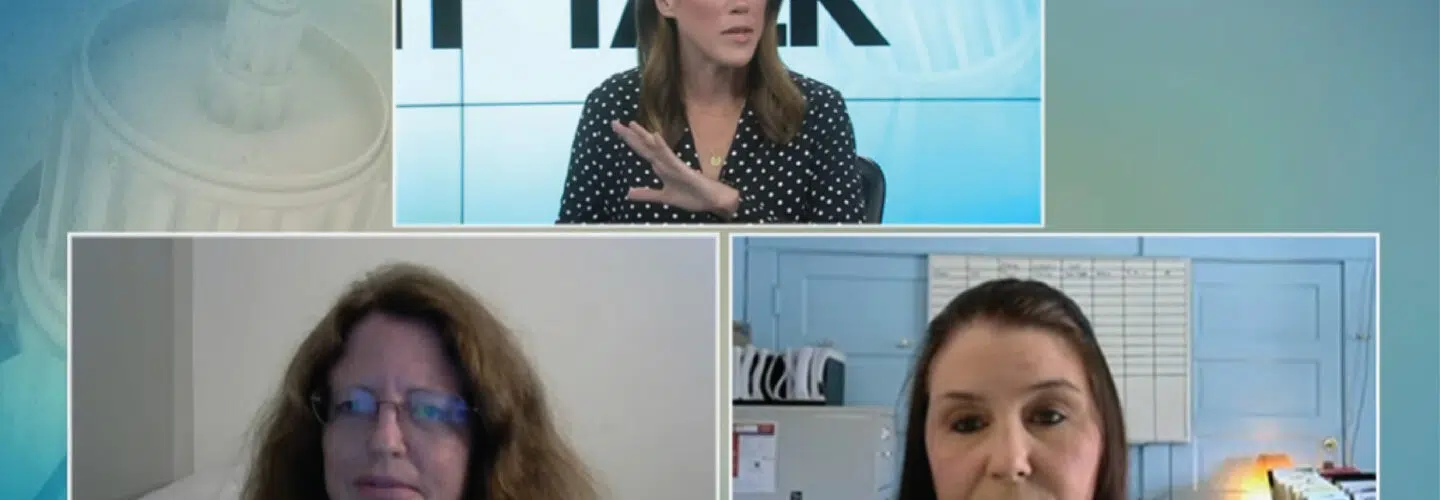Author: KGW Staff
Published: 9:13 PM PDT July 9, 2021
Updated: 9:13 PM PDT July 9, 2021
PORTLAND, Ore. — The Centers for Disease Control and Prevention (CDC) reported a record number of overdose-related deaths during the pandemic and several studies show binge drinking increased.
At the same time, a lot of treatment centers closed or limited in-person visits.
Dr. Eowyn Rieke, the outpatient medical director at De Paul Treatment Centers, joined Maggie Vespa on KGW’s Straight Talk to discuss the challenges.
“Our coping strategies were interrupted. We had this enormous amount of new stress, so we looked for new coping strategies and sometimes that ended up being alcohol and other drugs. As a result, we have legions more people who are using alcohol and other drugs in a way they’re not happy with or in a way that doesn’t feel comfortable for them,” said Dr. Rieke.
The isolation many people experienced during the pandemic also became a serious obstacle to recovery.
Angela Teuscher, a patient care manager at De Paul added, “Stability is a really important factor. With everything that happened during the pandemic, we were constantly shifting. So, there was nothing really to grasp on to in those times when everything felt like shifting sand.”
For those who may have turned to alcohol or other substances to cope during the pandemic, how can you tell if that use has become problematic?
Dr. Reike said it boils down to two aspects, control and impact.
Do you have control over your substance use? Can you decide to limit your intake, or not use it at all?
And, is the substance having a negative impact on your life? Can you meet the obligations and expectations you’ve previously set out?
Those seeking help often have to overcome the stigma attached to substance abuse.
Teuscher has been in recovery herself for more than 10 years.
“The perception is we’re not accomplishing anything or we’re no longer able to maintain any part of our life,” she said.
Teuscher added there’s the misconception that a person should be able to just stop using a substance when they notice there’s a problem.
“There comes a point that no matter how hard you try that choice is no longer in your grasp, to stop,” she said.
What can you do if you suspect someone is struggling with substance abuse?
“Oftentimes I don’t think we ask the person what they need, we’re trying to direct the narrative, we’re trying to tell them what they should be doing instead of asking in that moment, how can I help you? What can I do to make this easier for you?” recommended Teuscher.
Dr. Rieke added, “If we can come to people with an open heart and say I’m worried about your use, I see these things happening and I’m worried about the impact it’s having on you.”
Dr. Rieke says even positive change can be hard for those struggling with addiction.
Now that the pandemic is entering a new phase, more people have gotten vaccinated and states have reopened, there is a new set of challenges.
You may be around more people at work now, when you got used to working at home. New social situations, like gatherings at restaurants or bars, are now back on the table.
Dr. Rieke says we’re constantly having to adapt to a new set of circumstances in every part of our daily lives, and that stress can build up without us realizing it.
Teuscher recommends establishing boundaries for yourself at work and at home, and only take on what you’re capable and comfortable taking on.


